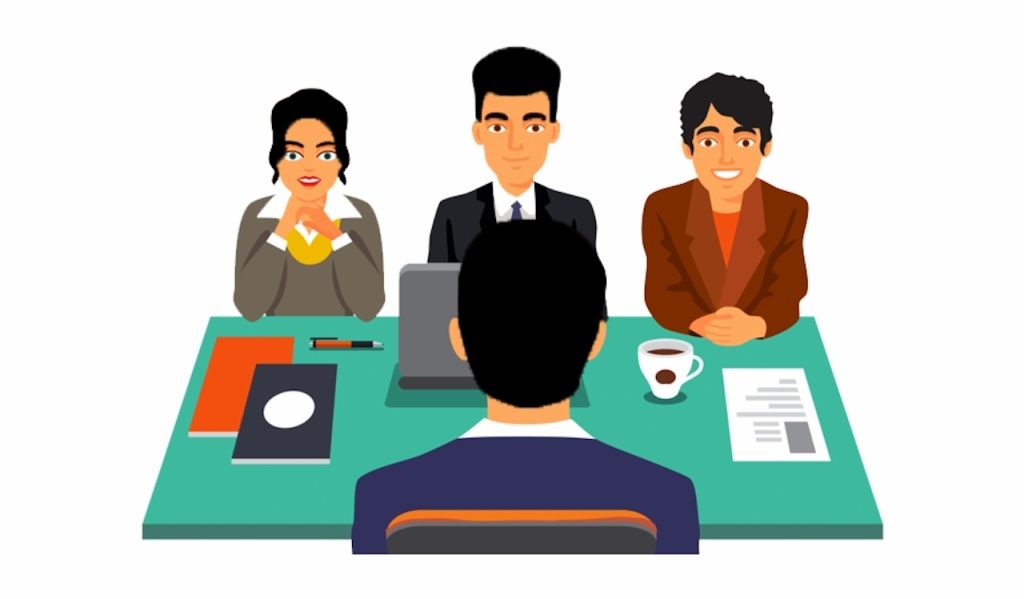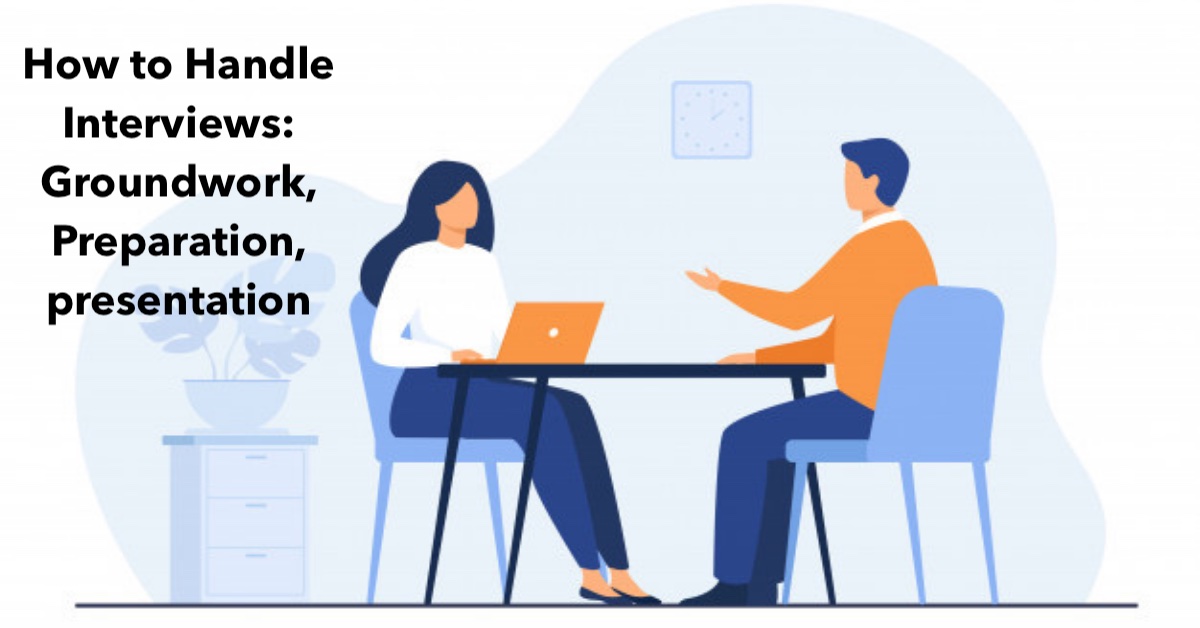How to Handle Interviews, Best Tips for Handle Interviews, The interview letter / notification is in your hand: Congratulations! You know that you have overcome the first hurdle of any job search. In the selection process that you may have encountered so far, you would have submitted an application which no doubt measured up to the standards expected by your potential employer; you may also have appeared for a written examination that you lave also cleared. So you know now that your approach so far has been correct and you have been found well prepared. At his point you must remind yourself that just as untidy or poorly prepared applications never stand a chance, neither do untidy or poorly prepared candidates.
How to Handle Interviews
The interview call means that:
- The employer is interested and believes that you have the right potential for the Position;
- There are other contenders and many of them are going to be unsuccessful and you don’t want to be among them; and
- You need to seriously start your pre-interview planning, which would include working on your personal presentation and also researching the background information.
The Groundwork:
In an interview you are selling, yourself, a process you began when you submitted your application form or Curriculum Vitae (CV). It is no longer a matter of just needing the right qualifications or experience, although these aspects will play their part, you now have to demonstrate that you also have the enthusiasm, motivation and commitment the interviewers are looking for. As a means of selection interviews are not without drawbacks but they invariably continue to be popular.
What to take with you for the interview: Even if these are not specifically requested, it is a good idea to take these with you: i) school certificates, ii) record of achievements after school, iii) examples of artwork or technical drawings, projects/published papers, where appropriate.
Take with you anything, which is relevant and supports your application. All this should be chronologically arranged in a file. Let the file be of sober hue and not garishly patterned/coloured.
Preparation:
Apart from looking good at the interview you should also be able to show that you are interested not only in the job that is on offer but the firm/company which is offering it. Carry out research to find out about the structure and products and services of the organization; to find out where the job fits into the organizational setup and to discover as much as possible about the job itself. Thorough background preparation will boost your confidence, it helps concentrate your mind on why you have applied for that particular job/position and it improves your chances of success.
Must Read – Download Bank Interview Questions
In a standard interview you should be prepared to tackle questions from these area:
i) Family – these help the interviewer to see you as a complete person;
ii) School and college, substantiate with documents;
iii) Hobbies and interests outside school or college – reveal motivational drives or attitude to work; other personality characteristics;
iv) Work experience – such questions reveals motivational drives, enthusiasm towards training, attitude towards work and authority, ability to cope and flourish within the work organization;
v) Goals for you responses you are expected to draw upon your values, interests and top skills.

Personal presentation:
If there is a time when first impressions count, then it is undoubtedly when you go for an interview. Your interviewers see you before speaking to you and have already formed an impression before the interview starts. Don’t appear with wildly styled hair, or unruly, uncombed hair, latest mirror lenses, bat-breath, garish makeup, or dirty or ragged fingernails. Choose formal clothes that are neat, tidy, clean, and well-fitting. No, designer names or brand names are not important at all. Jeans and T-shirts are out.
Let your shoes complement your outfit being both clean and well maintained. Make sure that you feel comfortable and confident in the outfit you have chosen – check out the fit before deciding. Always be practical – take a coat or raincoat and umbrella to keep you warm and dry or both. Jewellry should be kept to the minimum, no digital watches/mobile phones/pager that beep. Clean fabric handkerchief to cope with sneezes. Perfume after-shave to be as unobtrusive as possible and use a less perfumed deodorant.
As you enter:
Walk forward confidently, body straight, head up. Smile and be prepared to shake hands briefly but positively if your interviewer offers to shake your, not otherwise. Sit straight, but in a relaxed comfortable position, keep your hands, relaxed, preferably in your lap, Maintain good eye contact with the interviewer as soon as you have settled.
Typical interview Questions:
These are some frequently asked questions; you may be asked all, some or possibly only a few of them. Just go through these and prepare in writing the answers you would like to give.
Click Here to Check Common Job Interview Questions
SOME DON’TS:
At an interview, do not put yourself in a position where you have to lie or say you don’t know or blame someone else for a failure or shrug your shoulders. Even if this is true, don’t say you came for ‘the money’. Try not to put yourself in a bad light without saying something positive to compensate.
Always show: You have valid reasons for your answers. You are honest and open with your replies.
The exit – should be a stunningly good one. The way you leave is just as important as the way you enter.
Steps to an effective exit: gather together the items you brought with you ensure you have a tight grip on them.
- Stand up and straighten your clothes.
- Shake hands with your interviewers if this is expected.
- Thank the interviewers for their time.
- Smile
- Make your exit by – stopping at the door, turning, smiling and thanking again, leaving, closing the door quietly behind you.
Must Read – Special Tips For Group Discussion
Remember: A good interviewer will be looking for:
- Qualifications
- Experience
- Motivation
- Personality
- Additional or transferable skills
Your interviewer will also be looking for signs that you are interested, attentive, communicative, keen and most important of all, be able to show you have that ‘something’ extra. In the overall analysis of an interview, a good interviewer sums you up on several fronts at once by:
- Your answers to factual questions;
- How you answered these questions;
- How you responded to questions designed to encourage you to ‘sell yourself’:
- By your overall demeanour:
- Appearance, awareness, decisiveness, politeness, humor, openness and so on
Must Read – Special Interview Tips For – CA, CS, CMA Students
Just before:
The night before and the day of the interview, close your eyes for a few minutes. Create a picture in your mind of the interview, picture yourself relaxed and confident, responding to questions and asking questions of your own. Sea yourself getting up to leave the interview and the interviewer saying exactly what you want to be said.
Literally imagine the words you will hear from the interviewer. Believe me, it works! Make sure you have clear directions to the interview location-the bus routes/suburban train links, etc., and/or landmarks-and plan to arrive a few minutes early. Use your extra time to assess the atmosphere, talk with a receptionist, check out the publications in the room or go through the day’s newspapers and pick up any background information you can.
I am sure that you can see that preparation is your best ally when handling a standard interview. You can always make things better for yourself by using anytime you have before the interview to do your homework for yourself and the employer’s needs. Even if you are doing a series of interviews on the same theme, prepare for each one as though it were the only one. Whichever way the interview ends, always try to leave a favourable impression behind.
How to use the interview Experience: As you leave the interview room, you could be experiencing all sorts of reactions, from exhilaration and excitement to the deepest despair or a sense of anti-climax. Make an effort not to waste the valuable time immediately after your experience. Try to use the experience as a source of learning to perform better in future.
Must Read – Effective Presentation Skills
Reasons for you to take stock of what happened as soon as possible after the interview:
- To help you to fix events, personalities and facts associated with this one firmly in your mind for more interviews.
- You will be able to come up with the reasons/areas that unexpectedly let you down and need working on or which you handled well and need remembering.
- To be certain that you have enough information to decide whether to accept the job if it were offered to you.
- If things went really badly, reviewing what happened helps you to work through your tension, and if done thoroughly and objectively, should provide positive pointers on how to handle the next interview differently and to better effect.
If you thought that to shine at interviews you just turn up in your best outfit, look immaculately groomed, smile, shake hands in a positive manner are enough, you now know better. It is true that initially, interviewers may be impressed by a good turnout, hence your personal presentation as in clothes and appearance are important to make a positive first impression. But this is only part of the story. To raise your chances above the rest, you have to show you have that extra special something. The magic ingredient for this is thorough preparation.
